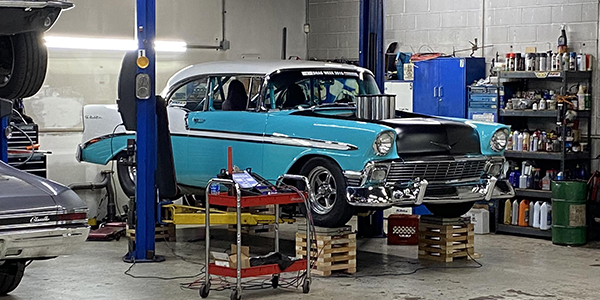Across the nation it seems we don’t always agree on what to call things. For example, when you order a soft drink to some it’s “pop.” To others it’s “soda.”
I know what you’re thinking – where is this going, and why am I thirsty all of a sudden? We’re going back to the acronym I introduced a few months back that stands for Professionalism, Organization and Profit. Obviously, I’m a POP kind of guy. I’m hoping you are also and not a SODA person. That’s because it means Some Other Description Applies. Because these are our choices today, we need to get ahead of the curve, make some money and change some perspectives.
Previously we talked about bringing our business up to its most professional, organized and profitable level possible. Well, as usual, I have a few more thoughts on the matter and they concern how professionalism comes into play.
If you have a contractor come to your home for some remodeling work, he’s probably going to ask for some up-front money for materials. You may worry that if you hand over some money, you’re never going to see this guy again. So what’s a customer to think if he walks into a dirty old shop with his shoes sticking to the floor, having to watch what his clothes might bump up against and seeing parts and trash lying about?
If his mind goes off in that same direction, the first thought in his head might have to do with trust. Now your relationship is getting off to a bad start. If you’re going to hand over your hard earned cash, especially before the job is done or even started, you want to know you can trust the person taking your money, right?
A good looking and clean shop conveys anticipation of a well done or “clean” job. What if the customer sends someone else to your shop to pick up his or her job? Does your environment make the customer comfortable enough to send, say, his wife or daughter? Or will he have thoughts of the movie “Taken?”
When you have to call and explain additional work and parts that the customer will need to complete his job, will it be an easy sell? Or, will he think some unexpected bills have come into your shop and that his job is going to pay them? Will the customer trust that he’ll get his numbers matching block and heads back? Or, will he be worrying that his parts will be lost among the many old cores stacked around the back door or possibly given to the wrong person?
Trust is the number one message you want to convey. “Trust me to fix this.” Or, “Trust me when I tell you what you’ll need.” And, “Trust me that you’ll get your money’s worth.” Maybe even, “Trust me to help your wife if she’s going to be the one picking things up.” Finally, “Trust me to be a professional in every way possible!” Would you want it to be any other way if you were the customer?
A clean shop is an organized shop. Organization is just as important for the customers’ trust as it is for you to get things done right and without wasting time. Organized means giving the customer’s parts back to him – all of them. Organized gets the billing done right the first time.
Organized helps keep you from making time-wasting mistakes. Organized gets you all your receipts in one place and the parts billed on the job. It also gets your papers filed and delivered to your accountant, so you have no troubles with the state or Feds.
I highly recommend some form of job ticket organizer. Again, this is as important for you as for your employees. You are as responsible for their time management as they are. You’re the boss. Obviously, better yet would be a computer. But an organized workspace of some sort will help you all see jobs waiting for parts and jobs waiting for a deposit. Finished work, work on hold and whatever other heading you may need to separate one job from the next.
A good organized impression would also be made if you have shelving, probably pallet racking, to hold all the parts and pieces for each job up off the floor. Or maybe above the block that’s on the floor. This also keeps it all together and safe from falling over onto someone.
Plastic totes from a big box store can be very useful and clear or translucent ones will allow you to make a simple paper sign with the customer’s name to put on the inside end of the box. Nice and easy to see, even on an upper shelf.
Pallet racking is also good for storing your cores. Put them away in the back, not under foot. Your shop might have nice yellow painted stripes for aisles and safety, but the last thing you need is blocks and heads lined up as aisle markers. Store them away or get rid of them before someone gets hurt and you get sued! Believe it or not, this will reduce stress and keep the confusion down, leaving only customers engines, which you’ll keep organized and continually moving in and out of the shop.
While we’re talking organizing, establish a way to order and check-in your parts. Before computers, I used to use a simple “0” next to the part that needed ordering from the work order. It became an “8” if it was ordered and a black blob if it was in the premises. You’re more creative than that, I’m sure, but it was easy and anyone could look at a work order and know what was happening with the parts acquisition.
Being organized and professional will make you money. Professionals garner repeat customers and referrals. These are your best hope for future customers. You can’t refer someone to a business that does not represent itself well because this can reflect back on you. People will feel good referring others to a clean, neat and well organized business, even if the business charged slightly higher prices than the dark and dangerous cave across town.
If “location, location, location” are the three most important things in real estate, then you must know by now that my three most important things for success in the automotive aftermarket are “profit, profit, profit.” Don’t be silly and think I am driven only by money.
That’s crazy. But without profit, you’re not here tomorrow, period. Without profits, you can’t buy pallet racking or a computer. And you’re not going to be able to get as organized and professional as you’d like.
How many profit centers in your shop? If you’ve answered “two,” parts and labor, I feel that might be a little shortsighted. In the broadest sense, yes, but in a managerial or ownership position you must see it as much more. Parts might be calculated to include what is needed to complete the job, plus the profits that can come from add-on sales. Related parts, chemicals, paint or performance oils and additives all have the potential to put more money in your pocket.
This can also be expanded to include, but not limited to, clutches, water pumps and motor mounts. You might also set up a wholesale account with a parts store or traditional WD and supply your customers with everything they need to complete the job, including belts, hoses and ignition parts.
Labor might be easier to see. How many employees, counting yourself? How many profit centers? Granted, your wife or accountant might not be producing labor out of the shop, but I hope everyone else is making you a profit.
Now let’s count machines. Each machine is capable of generating income and hopefully profit. If not, why? A machine needs to be able to produce; Otherwise it’s just wasting space that could be occupied by some greasy old cores. Seriously, consider each machine and each operation. I regularly hear that the cylinder head department generates the highest dollar per hour in most shops. This tells me that the other operations need to be addressed.
Start timing your major machining operations and compare your findings to your published or preferred hourly rate. If you’re not meeting or beating those numbers, it’s time for a price increase for that operation. You got into business to make money, if you want to continue you will occasionally need to raise your prices.
Check around with other shops that offer similar services as your own. See what they are charging. Now compare the variables. Can you charge a little bit more?
Do you have newer and faster equipment? Can you provide additional services that the others cannot? Look at it from many angles. This will help you determine your selling strategies as well. Now you can see a difference and you need to highlight these differences while talking with your potential customers.
Don’t forget that the atmosphere of your clean organized business will also help you because customers will expect to pay a little more in this environment. Conversely, if your business is a wreck, and still looks stuck in 1974 you’ll be perceived as just that up-to-date.
If it is dirty, unorganized and generally looks under-funded, then that’s what customers will expect to pay: 1970s-era prices that reflect a poor cut rate business.
It’s the choice of the now generation of shop owners. POP or SODA? You decide.


